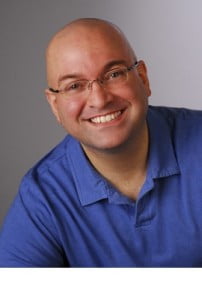 “When you complement your children, praise them for inner qualities such as kindness, honesty and perseverance so they will strive to contribute to the world in meaningful ways.” – Toni Schutta
“When you complement your children, praise them for inner qualities such as kindness, honesty and perseverance so they will strive to contribute to the world in meaningful ways.” – Toni Schutta
When my boys were younger they came to believe that their primary purpose in this world was to be a source of frustration for others. They spent so much time on the receiving end of correction that it was difficult to see themselves as more than a broken human being in constant need of repair.
As they struggled with autism and all the difficulties it brings, all they were really trying to do was find the valuable part of themselves that the world would appreciate.
I did a lot of traveling over the past week as I presented to various groups on the communication strategies I’ve learned over the years. It was an exchange with a mother during the final presentation of the week that stands out most in my mind. She has a young daughter on the spectrum with very low self-esteem. The mother shared that she tells her daughter all the time how smart and capable she is but it doesn’t seem to help.
I shared with her that it is likely her daughter doesn’t agree with her because so much of her daughter’s self-concept is shaped by her struggles and not her successes. I then shared with her and the rest of the audience a realization I had when Aidan was younger. Aidan had so many challenges early on that he spent more time out of the classroom than in as he worked with various support people to help him overcome his challenges in the classroom.
I can’t remember the exact moment but one day we discovered that when there were chores to do around the house Aidan was the first to volunteer. He would commit himself with such enthusiasm and a big smile. We discovered that Aidan’s enthusiasm was driven by the need to feel competent. He did his chores well and always received our gratitude for a job well done. He experienced a sense of accomplishment that was sorely lacking in the other parts of his day.
When I discovered this I reflected upon how to make those moments a bigger part of the lives of my children. Here’s the principle that guides my thinking on this approach. It only takes knowing that something they said or did has made your life one step better for it to be believable. If your compliment seems too far removed from their self-concept your child will often reject it outright.
Your child will often reject the notion that he’s brilliant when he spends a lot of time thinking he’s stupid. What he’s likely to believe and take credit for is a decision in the moment that had a positive observable result to which you respond, “That was a very smart decision, I’m so glad you thought of that.” One thing, in one moment that made a positive difference provides the building blocks for increased confidence in our kids.
My boys do little things for me all the time. On days when I’m very sore or tired I’ll ask one of them to get me something. When they do I don’t offer up a generic “thanks.” Instead I say, “I really appreciate you doing that for me. My knee is so sore and you’ve helped me rest it more.” In that statement I let them know how their actions contributed to my life in a positive way.
Our kids don’t have to win awards or get an “A” on a test to earn the right to feel accomplished. All they need are opportunities to provide value to the lives of others and be acknowledged for it. These moments are the seeds that enable a child to experience her value each and every day in spite of her challenges.
These are the opportunities for a child to begin to contemplate the bigger role s/he has to play in the world instead of simply seeing the experience of engaging the world as something to avoid.
By the way, this approach works great with adults too.
Is there something your child contributes to your life that you will make a point of thanking him/her for more often? Please share it with us.
Thanks for being you.
“Do you like what you’ve read here? Please share it and leave a comment below.”
About Brian R. King
Brian R. King LCSW (ADHD & ASD Life Coach) is a #1 Best Selling Author, 25-year cancer survivor, adult with Dyslexia, ADHD, and Asperger’s. He’s also the father of three sons on the autism spectrum. He is known worldwide for his books and highly engaging presentations that teach the power of connection and collaboration. His strategies empower others to overcome their differences so they can build powerful and lasting partnerships. His motto is: We’re all in this together.
